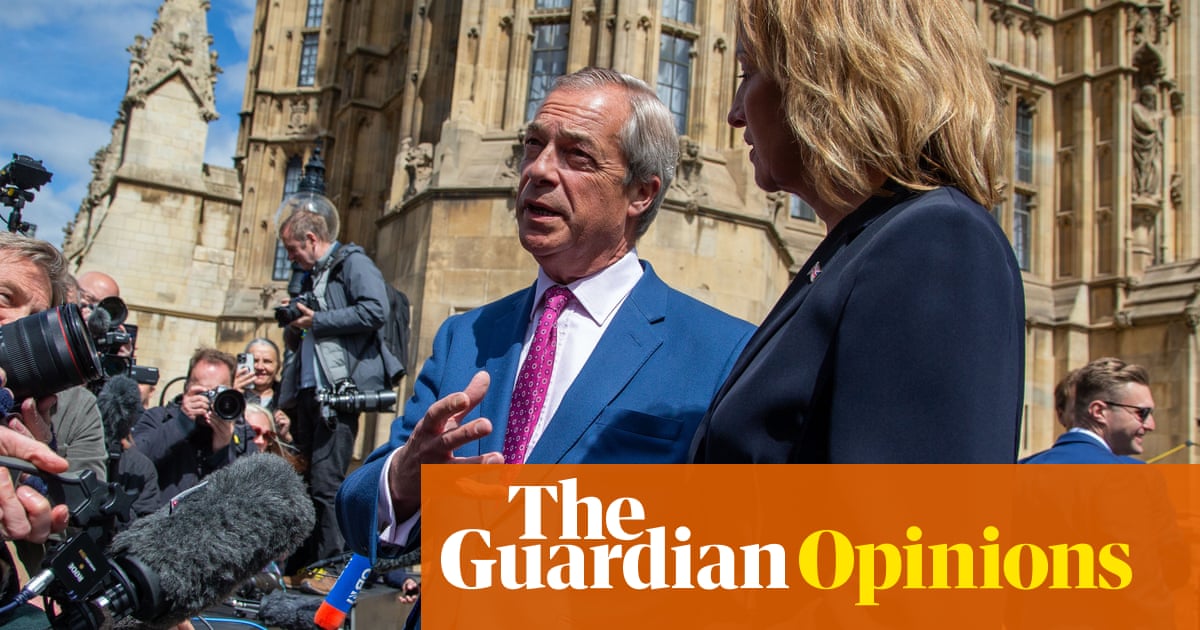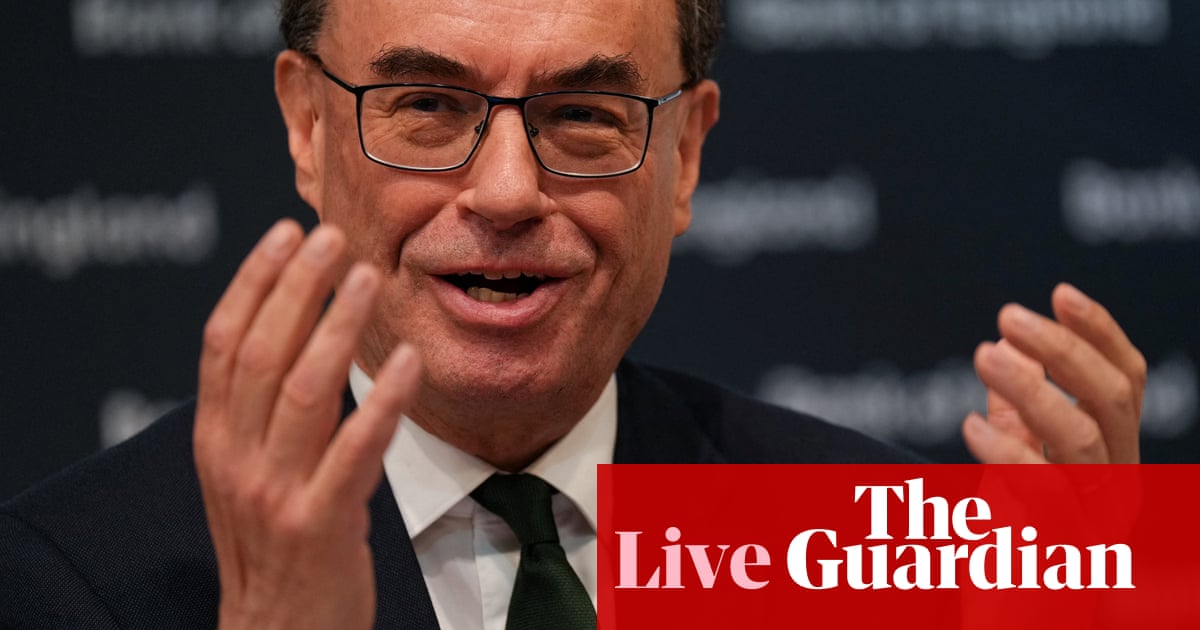It seems unlikely Rachel Reeves had “cut back public spending plans” on her list of new year resolutions – but by the end of a rocky week, it was clear she has the red pen ready, if bond markets fail to settle down.
At one level, this makes perfect logical sense: the chancellor has promised not to raise taxes in the near future, after a whopping £40bn increase announced in October; and her fiscal rules are, as her chief secretary, Darren Jones, told MPs, “non-negotiable”.
Last week’s market moves, which drove 30-year gilt yields to their highest level since 1998, above 5%, probably had more to do with the chaos to come in the US than Reeves’s budget plans.
But whatever the cause, if sustained, the jump in yields will push up the interest bill on the government’s vast debt pile. And that would jeopardise Reeves’s hopes of meeting her fiscal rules – specifically, the “current budget balance” one – by the end of the five-year forecast period.
There is no doubt that the UK’s fiscal position is unenviable. Even before the latest market panic, the Office for Budget Responsibility was expecting the Treasury to be spending more than £122bn on debt interest payments a year, by 2029-30.
Mark Carney, the former governor of the Bank of England, once warned that the UK was “reliant on the kindness of strangers” (specifically, foreign investors) to fund its deficits – and therefore subject to the whims of the markets. It is all the more true post-pandemic, given the sharp upsurge in government debt.
When the mood of those strangers swings against the government, then it is hard to ignore. Some analysts even fear investors may be influenced at the margins by Elon Musk’s obsession with what he seems to think is the dire state of the UK.
Take all this into account, and imposing a tougher spending squeeze on Whitehall departments in the later years of the upcoming spending review than Reeves sketched out in the autumn may seem a reasonable response. It is certainly the one government officials have been pointing to, alongside dark hints about the benefits bill and the need for public sector pay restraint.
Yet as the Resolution Foundation pointed out on Friday, kneejerk spending cuts are not just digits on a spreadsheet but will have material implications (see last year’s decision to scrap the winter fuel allowance for the vast majority of pensioners – also made with fretful markets in mind).
The thinktank warned Reeves against “taking permanent and concrete policy decisions with real-life impacts on households, in reaction to bond market movements that may turn out to be temporary”, urging her to “keep calm and carry on” until the autumn budget.
Doing nothing at all could rile the gods of the bond markets – risky for any chancellor, as Kwasi Kwarteng can attest.
But perhaps there is a sensible halfway house, that involves promising action at the autumn budget, should borrowing costs fail to come down – rather than fine-tuning on the basis of a market tantrum.
If there must be an adjustment, it has to be worth stepping back to ask whether it should happen through taxation rather than spending.
As the Institute for Fiscal Studies never tires of pointing out – to the Treasury’s irritation – the projections for the final years of the spending review period already look eye-wateringly tight, with growth of only 1.3% a year pencilled in after 2025-26.
Reeves is right to focus on the need to drive out government waste and inefficiency and demand higher productivity from public services. There’s nothing wrong with promising what she calls an “iron grip” on the public purse. Voters have the right to demand their taxes are well spent.
after newsletter promotion
But also – look around you. Schools, hospitals, parks, libraries, potholed roads, crappy bus links – so many aspects of the public realm are broken.
Reeves knows about this: in her budget speech, as she set aside extra funding for schools, she talked about being taught in mobile classrooms in the 1990s, after long years of underinvestment by the Tories – an experience I remember, too.
She has changed the way the debt rule is calculated, to make some space for much-needed capital spending, including for crumbling classrooms. But new public infrastructure is no use without the day-to-day spending needed to staff and run it.
Stronger than expected growth may yet come through and save the day. But, ultimately, Labour may have to acknowledge that (even more) tax rises are needed to do what they were elected to do and change the country for the better. It would be politically painful, but so are all the other options.
Party strategists are adamant that they could not have won last year’s general election without Reeves’s promise not to increase national insurance contributions and just about every other major revenue-raiser.
Jeremy Hunt cut NICs by 2p twice, at two successive fiscal events, in the hope of closing the gap in the polls with Labour. He got zero credit from the voters, who apparently had other concerns.
Nevertheless, Labour insiders insist that polling told them the reason the electorate was hesitant about putting a cross in the Labour box was fear of higher taxes. Candidates wanted a firm pledge to offer on the doorstep.
Well, fine. But if Reeves ends up unable to spend enough to improve the UK’s broken public services in a way that registers with the public as the “change” they voted for, there is a risk that Labour ultimately loses the next election, boxed in by the promises it made to win the last one.

.png) 3 months ago
38
3 months ago
38













































